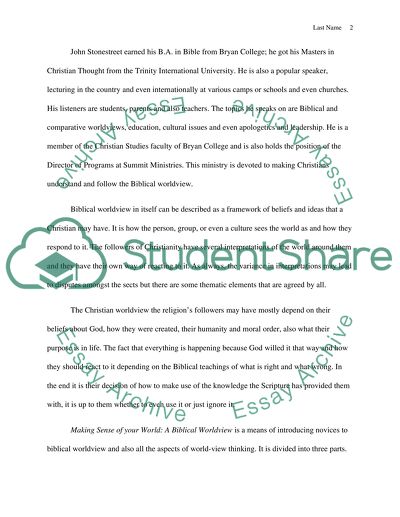Cite this document
(“Review / Summary of a book.--Making Sense of your WORLD: A Biblical Book Report/”, n.d.)
Retrieved from https://studentshare.org/religion-and-theology/1402366-12-pages-review-summary-of-a-book-making-sense-of-your-world-a-biblical-worldview-by-gary-w-philips
Retrieved from https://studentshare.org/religion-and-theology/1402366-12-pages-review-summary-of-a-book-making-sense-of-your-world-a-biblical-worldview-by-gary-w-philips
(Review / Summary of a Book.--Making Sense of Your WORLD: A Biblical Book Report/)
https://studentshare.org/religion-and-theology/1402366-12-pages-review-summary-of-a-book-making-sense-of-your-world-a-biblical-worldview-by-gary-w-philips.
https://studentshare.org/religion-and-theology/1402366-12-pages-review-summary-of-a-book-making-sense-of-your-world-a-biblical-worldview-by-gary-w-philips.
“Review / Summary of a Book.--Making Sense of Your WORLD: A Biblical Book Report/”, n.d. https://studentshare.org/religion-and-theology/1402366-12-pages-review-summary-of-a-book-making-sense-of-your-world-a-biblical-worldview-by-gary-w-philips.


